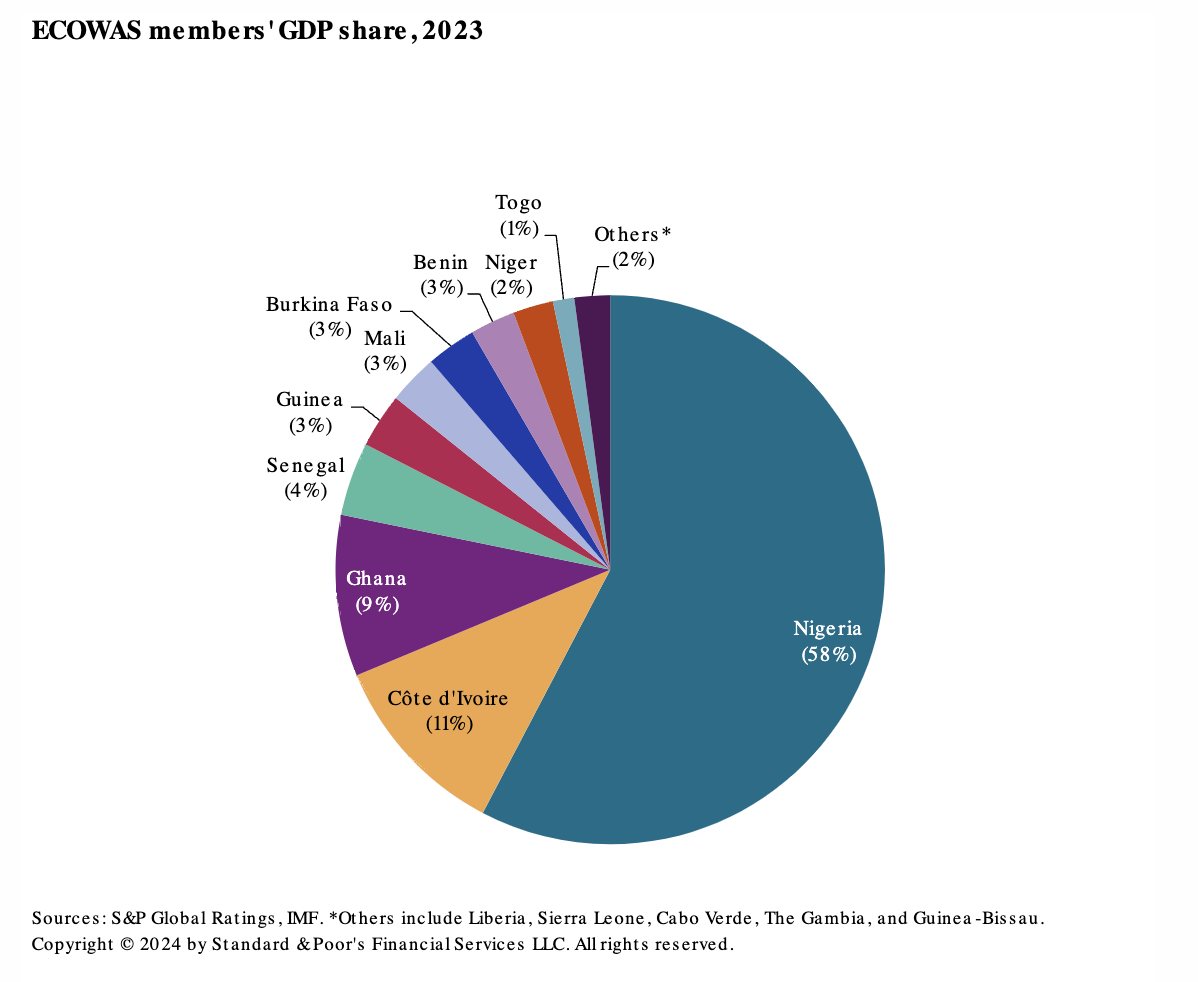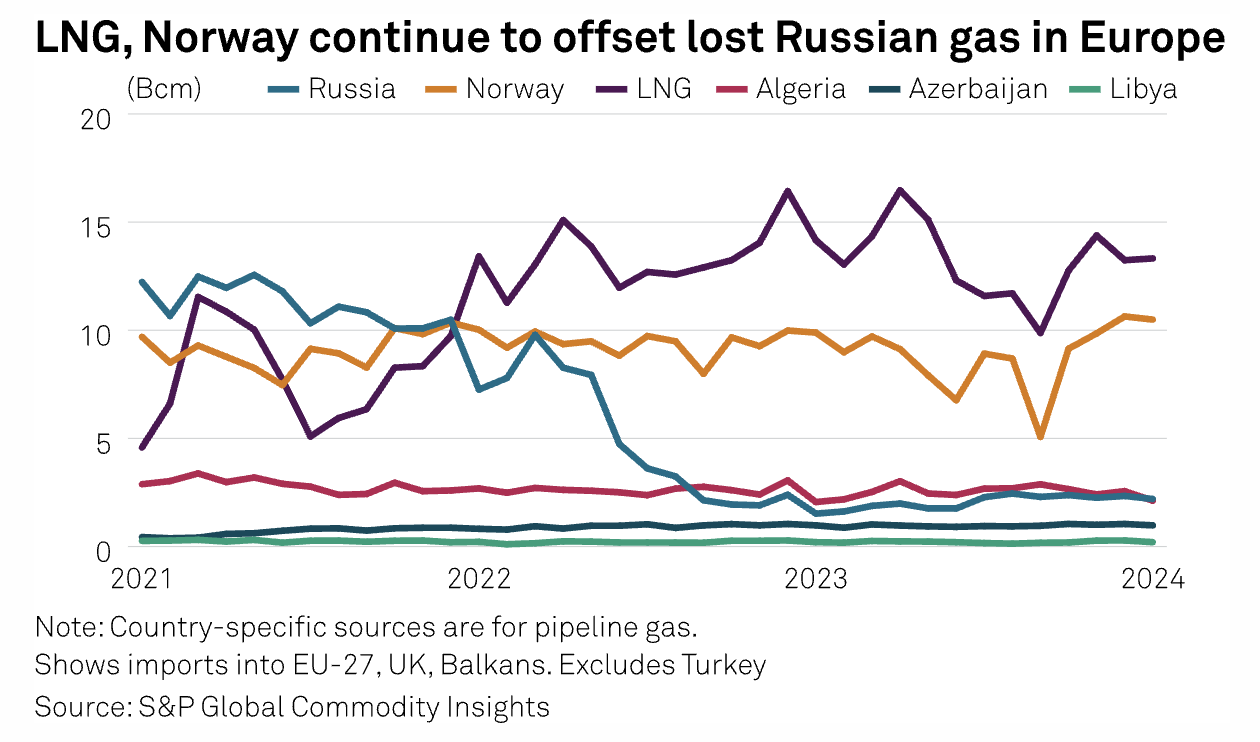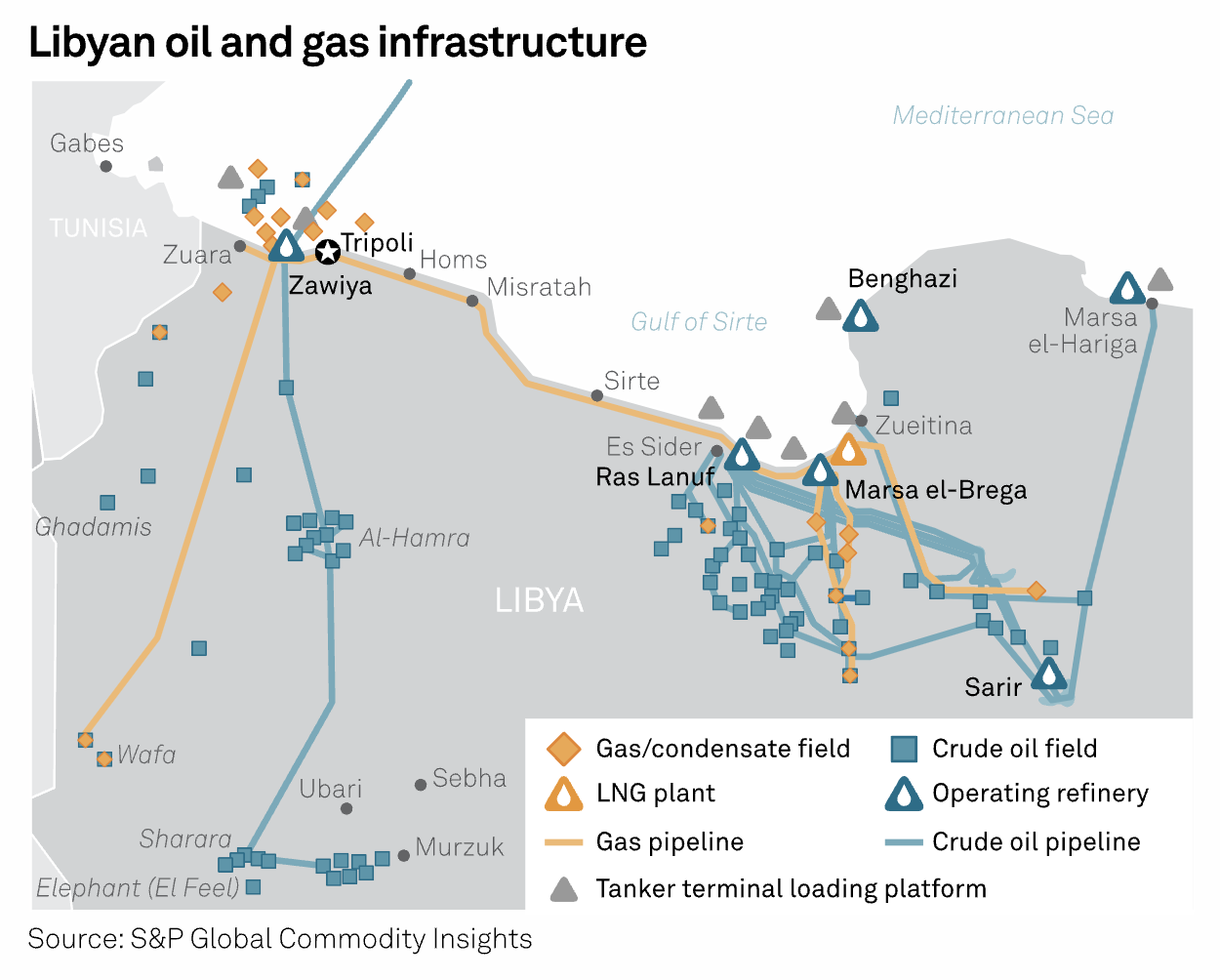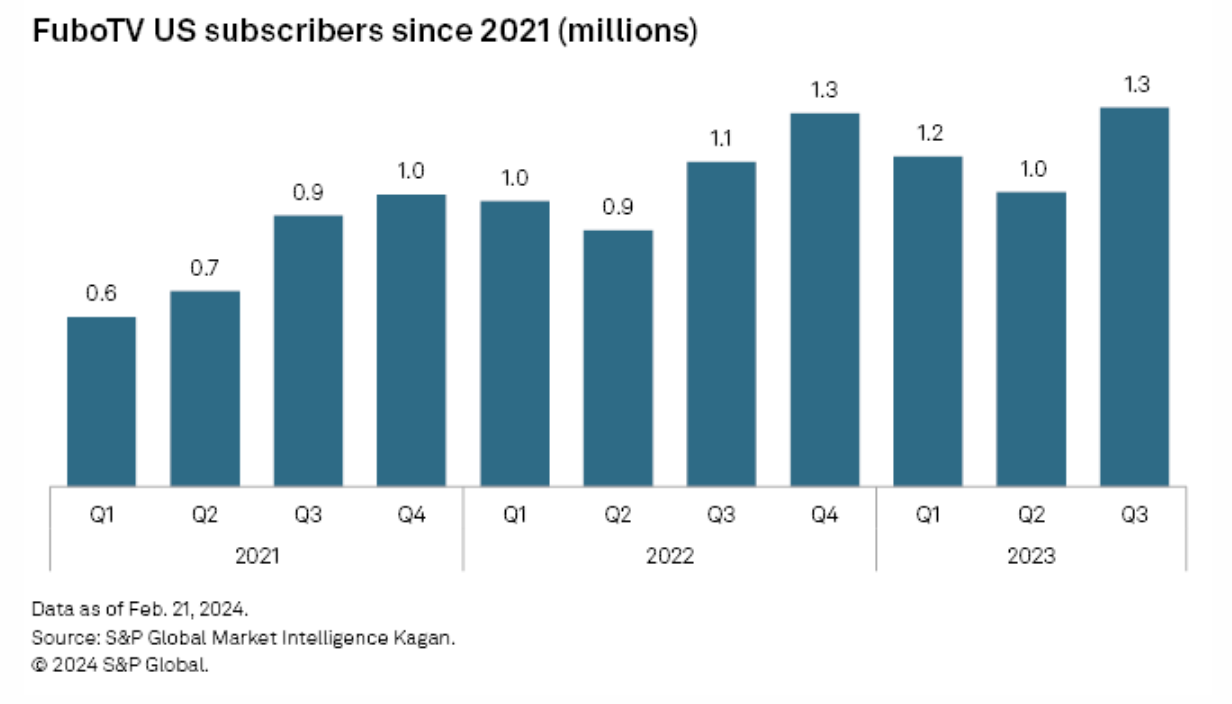Featured Topics
Featured Products
Events
S&P Global Offerings
Featured Topics
Featured Products
Events
S&P Global Offerings
Featured Topics
Featured Products
Events
S&P Global Offerings
Featured Topics
Featured Products
Events
Language
Featured Products
Ratings & Benchmarks
By Topic
Market Insights
About S&P Global
Corporate Responsibility
Culture & Engagement
Featured Products
Ratings & Benchmarks
By Topic
Market Insights
About S&P Global
Corporate Responsibility
Culture & Engagement
S&P Global — 28 Feb, 2024 — Global
By S&P Global
Start every business day with our analyses of the most pressing developments affecting markets today, alongside a curated selection of our latest and most important insights on the global economy.
Container Shipping Begins the Hard Work of Decarbonization
The average weight of an empty container ship is about 100,000 tons. Cargo adds between 25,000 and 150,000 tons. This means a container ship’s engine needs to push the equivalent of Chicago’s Sears Tower through the water. At any given time, there are over 5,000 container ships dragging this massive weight across the world’s oceans. The energy demand of these ships is massive, which is why container shipping accounts for approximately 0.75% of global greenhouse gas emissions. Under the leadership of the International Maritime Association (IMO), the shipping industry is attempting to achieve net-zero GHG emissions by or around 2050. The question for the shipping industry — and for the companies that depend on container ships to get their goods to market — is who will end up paying for the transition to a lower-emission fleet and the carbon offsets that are necessary to achieve net-zero.
In anticipation of S&P Global’s TPM Conference, taking place March 3-6 in Long Beach, California, a group of researchers at S&P Global have launched the latest report in the Look Forward series, this time focusing on the state of supply chains in 2024. Because supply chains are critical to the global economy, the Daily Update will focus on different aspects of this report throughout the week. Today’s update will look at “Decarbonization and development: Logistics network investments.”
The biggest issue for the decarbonization of container shipping is the popularity of bunker fuel for marine diesel engines. Also known as heavy fuel oil, bunker fuel has the advantage of being cheap, but its emissions profile is less advantageous. It has a tar-like consistency that makes remediation very difficult when spills occur. Because of the high sulfur contamination in bunker fuel, combustion releases sulfur dioxide in addition to a large quantity of black carbon and carbon dioxide.
There are cost implications for all the alternatives to bunker fuel. The most popular lower-emissions fuel in use is LNG. There are 74 LNG-powered container ships currently in operation, with a further 186 LNG ships ordered from builders. Green ammonia and methanol have the potential to act as zero-carbon fuels. A total of 125 methanol-powered container ships have been ordered. Ammonia is trickier, although it is showing potential as shipping fuel. Because ammonia is highly toxic, there are concerns about the environmental impact of spills. Approximately 40% of the ships currently on order have lower-emissions fuels. Since container ships have an active life of 20-30 years, it is difficult to account for the 60% of ships being built to burn bunker fuel within the IMO targets for decarbonization. The progress in moving beyond bunker fuel for shipping is notable, but it needs to accelerate to achieve current deadlines.
Carbon reductions initiatives, like the IMO’s net-zero goals or the EU Emissions Trading System, create additional costs for shippers. Moving from cheap but carbon-intensive bunker fuel to lower-emissions fuels will increase the price of shipping. But any further reduction will need to come from carbon offsets or surcharges. Creating more efficient ports will also reduce emissions, but developing the software and systems to achieve these gains carries a price tag. Container shipping companies will want to pass these costs to their customers, and their customers will want to pass them to consumers.
Today is Wednesday, February 28, 2024, and here is today's essential intelligence.
Written by Nathan Hunt.
What The Departure Of Burkina Faso, Mali, And Niger From ECOWAS Would Mean For WAEMU

In late January 2024, Burkina Faso, Mali and Niger jointly announced their withdrawal from ECOWAS in response to sanctions that ECOWAS imposed on the three countries following a series of coups d'états. The three countries announced that their departure from ECOWAS would be immediate, but the withdrawal protocol requires them to remain in the regional bloc for up to a year after giving notice. In this context, it is still unclear whether the announced departure will go ahead.
—Read the article from S&P Global Ratings
Access more insights on the global economy >
Hong Kong Bourse Net Income Set To Grow Nearly 19% In 2023 Before Slowing

Hong Kong's monopoly bourse is set to see a nearly 19% increase in net income for the year ended Dec. 31, 2023, analyst estimates show. The pace of growth could, however, drop in the next two years amid prolonged global economic uncertainties. Net income at Hong Kong Exchanges and Clearing Ltd. (HKEX) is likely to grow 18.9% to HK$11.98 billion for 2023, compared to a decline of 19.6% seen in 2022, according to analyst estimates compiled by S&P Global Market Intelligence.
—Read the article from S&P Global Market Intelligence
Access more insights on capital markets >
After Two Years Of War, Europe Emerging From Shadow Of Russian Gas

Two years since Russia launched its full-scale invasion of Ukraine — helping to trigger arguably the most serious gas crisis in Europe’s history — market dynamics are much changed, with supply sources and routes majorly altered. With the majority of Russian pipeline deliveries halted, only a handful of countries still import piped gas from Russia’s Gazprom, among them Austria, Slovakia, Hungary and non-EU Serbia.
—Read the article from S&P Global Commodity Insights
Access more insights on global trade >
Listen: What Will It Take To Decarbonize Supply Chains, Reach Net-Zero
In this episode of the ESG Insider podcast, we explore how companies are moving from setting sustainability-related targets to figuring out how to reach those goals. A common refrain we heard at the annual GreenBiz conference in Phoenix, Arizona last week was: "What will it take?" For example, what will it take for companies to achieve net-zero goals and decarbonize supply chains — including those involved in transporting materials and products?
—Listen and subscribe to ESG Insider, a podcast from S&P Global Sustainable1
Access more insights on sustainability >
Libyan Production, Exports Resume After Guards' Protest At Oil Field And Gas Pipeline Called Off

Oil production at Libya's Wafa field and gas flows through a key pipeline to Italy have resumed following a brief shutdown after successful negotiations between the Petroleum Facilities Guard and the country's UN-recognized government, according to sources. In a coordinated protest on Feb. 25, the PFG — tasked with guarding Libya's vital oil and gas infrastructure — cordoned off the Wafa oil and gas field as well as the al-Zawiyah export terminal, part of the Greenstream pipeline connecting Libya with the Italian island of Sicily, sources told S&P Global Commodity Insights.
—Read the article from S&P Global Commodity Insights
Access more insights on energy and commodities >
Why FuboTV Called Foul On Media Companies' Sports Streaming Venture

FuboTV Inc. is throwing a flag on three media conglomerates' recent sports gambit. The sports-oriented, live-streaming provider Fubo filed suit Feb. 20 to block a planned joint venture from Walt Disney Co.'s ESPN Inc., Fox Corp. and Warner Bros. Discovery Inc. The suit claims that the planned venture is taking a page from the playbook Fubo wanted to run: providing fans with a lower-priced streaming alternative to the linear pay-TV bundle.
—Read the article from S&P Global Market Intelligence
Content Type
Location
Language
